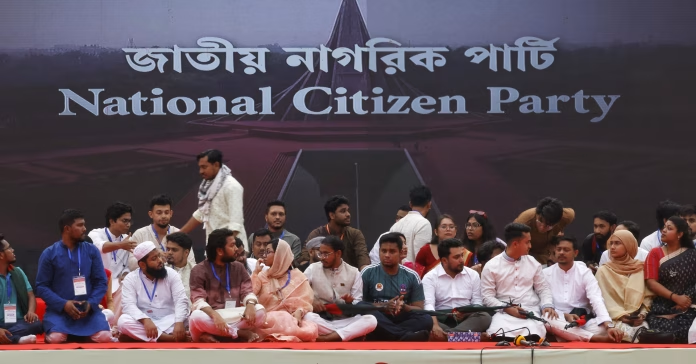In a politically charged atmosphere leading up to the February polls in Bangladesh, a fierce dispute has erupted between the student-led National Citizen Party (NCP) and the nation’s Election Commission (EC). The crux of the conflict lies in the EC’s refusal to grant the NCP its desired electoral symbol, the ‘shapla’ (water lily), a decision that has drawn sharp criticism and even threats from the newly formed political party.
The NCP, which emerged from the “Students against Discrimination” movement that played a pivotal role in the ousting of the previous government, is adamant about its choice of the ‘shapla’ as its symbol. The party’s convenor, Nahid Islam, has made their position clear, stating, “The commission could not show any legal logic for not allocating the ‘shapla’ (water lily) as our symbol and therefore we are sticking to our demand.”
The rhetoric from the NCP has escalated, with some leaders threatening to disrupt the upcoming elections if their demand is not met. Sarjis Alam, the party’s chief coordinator for northern Bangladesh, took to social media with a stern warning: “Since there is no legal barrier, the NCP must get the ‘shapla’ as its symbol; there is no other option. Unless we get it, we will see how the election is held and how someone could dream of attaining power.”1
On the other side of the dispute, the Election Commission maintains that it is bound by the existing rules and regulations. The EC’s senior secretary, Akhter Ahmed, explained the commission’s stance, stating, “The ‘shapla’ is not on our list of 115 electoral symbols. According to the rules, political parties must choose a symbol from the approved list.”
However, the NCP contests this, with their chief coordinator Nasiruddin Patwary suggesting that the rules are not immutable and can be amended to accommodate their request.
This standoff is taking place against a backdrop of skepticism from political analysts regarding the NCP’s electoral prospects. The party’s candidates recently suffered significant defeats in student union elections at major universities, raising questions about their broader appeal. Despite these setbacks, the NCP remains optimistic about its chances in the February polls, expecting to win a substantial number of seats.




